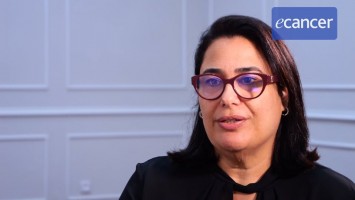I presented how a consortium in Europe can make work go fast and especially in the field of cancer, and how Europe can be a big representative of scientific forces, clinical forces and how we can work all together in building something new in Europe which is a consortium working both at the basic research level towards clinical care of the patients and to also improve public health.
Where will you take this research in the future?
We already delineate what we should do. I believe that the major part of it is really to share the data between all of us, share the data that means that we can progress in making research all together, exchange results, exchange information and allow people inside our consortium and outside our consortium to work with all the data we can get from these efforts.
How are you sharing this data?
We are willing first to have a common depository of data, provide access to people to the data of the others and to make research about this data because that data by itself, one institute, it’s limited. When you pull out all this information coming from these six different sources you can have access to a huge amount of information that you can treat and get outcomes from that.
Would this be freely available to people?
The idea is at what point after being able to do that should be to open that to other researchers at the global level, I hope.
What stage are you currently at?
At this point we have tested several solutions and some of us have adopted this solution. We are testing the feasibility; we have use cases we are exploring and as soon as all this is set up we will expand that to all the six centres and allow after that people to have access to this information.
What is the long-term goal?
The long-time goal we have in Cancer Core Europe is really to set up and to pave the way for a virtual European cancer institute. That’s really our idea. We started six centres and we expect in the near future to include other centres from other countries in Europe. So at the end it’s really to reach our goal which is to create this virtual European cancer institute.
Why are events such as the Eurocan conference important?
This type of meeting is very important for us because we are meeting young people, the next generation of scientists and MDs and oncologists. It’s a good way, they are very interested in Europe, they’re willing to collaborate and it’s a unique opportunity for us to have these contacts with these people, enthusiastic people, which will be the next generation to succeed.
What is your take-home message?
My take-home message for this meeting is really that we have to share, to share the knowledge, to share the data and to go forward all together. I believe one other big issue with this consortium is to address the next generation of clinical trials using both the tools from genomics but also from immunology because the main therapies at this point are really targeted therapies for personalised medicine but also immunotherapy which is developing very fast now. That will bring really excellent results for the patients in the near future.








